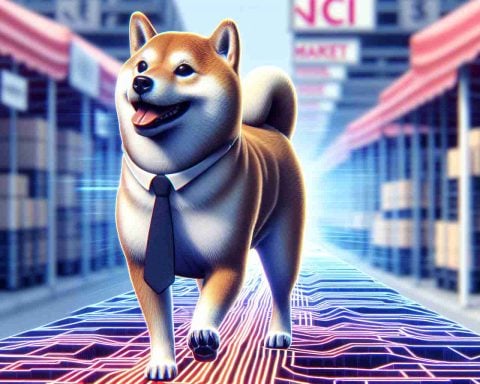As the automotive industry evolves towards cleaner and more efficient transportation, a new era of vehicle powertrain systems is emerging. With the global push for electric vehicles (EVs) gaining momentum, automotive manufacturers are doubling down on innovative solutions to meet the growing demand for environmentally friendly transportation options.
One of the key technological advancements driving this shift is the development of hub motors for electric vehicles. These cutting-edge electric motors, directly integrated into the wheels of the vehicle, are revolutionizing the concept of traditional powertrains. By utilizing brushless direct current (BLDC) technology, hub motors offer increased power density and enhanced motor life by eliminating the need for contact between the stator and rotor.
Through the adoption of hub motors, vehicles can operate without the necessity of a gearbox, differential, or other traditional power transmission components. This not only reduces the overall weight of the vehicle but also enhances its efficiency, leading to improved performance and range for EVs.
Despite the numerous benefits of hub motors, challenges such as decreased vehicle speed and increased unsprung weight persist, hindering their widespread adoption. However, major players in the automotive industry like Protean Electric, GM, and Dana TM4 are investing in the advancement of hub motor technology, aiming to overcome these hurdles and drive the automotive industry towards a more sustainable and innovative future.
From premium SUVs to heavy commercial vehicles, the automotive sector is witnessing a paradigm shift in powertrain design and functionality to cater to the diverse needs of modern transportation. The race towards greener and more efficient vehicles continues to fuel innovation and drive the market towards a future of sustainable mobility solutions.
Discover the future of automotive powertrain technology with a comprehensive market analysis and stay ahead of the curve in the ever-evolving automotive landscape.
The revolution in automotive technology continues to shape the future of vehicle powertrain systems, with an increasing focus on sustainable and efficient transportation solutions. While hub motors for electric vehicles have been a significant technological advancement, there are several other groundbreaking innovations that are reshaping the automotive industry.
New Technological Advancements:
One notable innovation gaining traction is the development of solid-state batteries for electric vehicles. Solid-state batteries offer higher energy density, faster charging capabilities, and improved safety compared to traditional lithium-ion batteries. This technology has the potential to address common EV limitations such as range anxiety and long charging times.
Important Questions:
– How do solid-state batteries compare to lithium-ion batteries in terms of cost and performance?
– What impact will solid-state batteries have on the adoption of electric vehicles in the mass market?
– Are there any challenges or limitations associated with implementing solid-state batteries in vehicle powertrains?
Key Challenges and Controversies:
One of the primary challenges facing the widespread adoption of solid-state batteries is the current high manufacturing costs associated with this technology. Additionally, there are concerns about the scalability of production to meet the increasing demand for electric vehicles globally. Controversies also exist regarding the environmental impact of extracting and processing materials used in solid-state batteries.
Advantages and Disadvantages:
– Advantages: Solid-state batteries offer higher energy density, faster charging times, and improved safety compared to lithium-ion batteries. They have the potential to significantly enhance the performance and range of electric vehicles.
– Disadvantages: One of the main disadvantages of solid-state batteries is the current high cost of production, which can hinder their mass adoption. Additionally, the environmental implications of sourcing raw materials for these batteries raise sustainability concerns.
As the automotive industry continues to evolve, stakeholders, including major manufacturers and technology companies, are investing in research and development to overcome these challenges and drive the widespread adoption of solid-state batteries in vehicle powertrain systems.
Explore the future of automotive powertrain technology beyond hub motors and delve into the advancements in solid-state battery technology that are shaping the next generation of electric vehicles.
For more insights into cutting-edge automotive technologies and industry trends, visit Automotive News. Stay informed about the latest developments in sustainable mobility solutions and the future of vehicle powertrain systems.





















